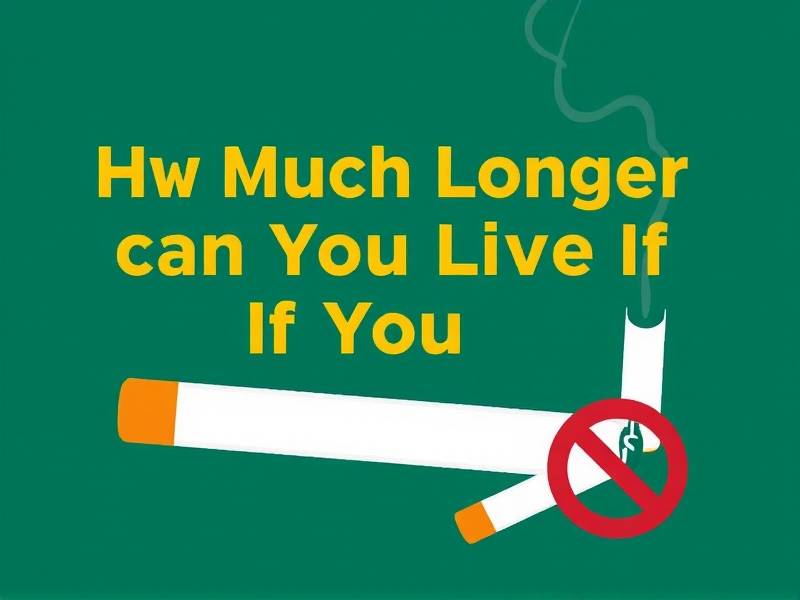How Much Longer Can You Live If You Quit Smoking?
Unveiling the Lifelong Benefits of Quitting Smoking
Introduction: The decision to quit smoking is a life-changing one, and many individuals are eager to know just how much longer they can expect to live by making this positive change. In this article, we delve into the profound impact of quitting smoking on lifespan, backed by scientific research and expert insights.
Section 1: Understanding the Risks of Smoking Smoking is a leading cause of preventable deaths worldwide, with numerous health risks associated with it. By quitting smoking, you not only improve your own health but also extend your life expectancy.

Section 2: The Science Behind Quitting Smoking Research has shown that within just a few days of quitting smoking, your body begins to repair itself. The following are some key points highlighting the benefits of quitting smoking:
- Within 20 minutes: Your heart rate and blood pressure drop.
- Within 12 hours: Carbon monoxide levels in your blood drop to normal.
- Within 2 weeks to 3 months: Your circulation improves, and your lung function increases.
- Within 1 to 9 months: Coughs, shortness of breath, and fatigue decrease as lung capacity improves.
- Within 1 to 5 years: The risk of stroke drops significantly.
- Within 5 to 15 years: The risk of cancer decreases significantly.
- Over time: The risk of coronary heart disease decreases.
Section 3: Estimating the Lifespan Extension While it's challenging to provide an exact number for how much longer you can live by quitting smoking, studies suggest that smokers can add anywhere from 5 to 15 years to their lifespan. This estimate varies depending on factors such as age at quitting, duration of smoking history, and overall health status.

Section 4: Long-term Health Benefits Quitting smoking not only extends your lifespan but also provides long-term health benefits that improve the quality of life:
- Reduced risk of chronic respiratory diseases such as chronic obstructive pulmonary disease (COPD) and emphysema.
- Decreased risk of heart disease and stroke.
- Lowered risk of certain types of cancer, including lung cancer.
- Improved fertility in both men and women.
Conclusion: The decision to quit smoking is a powerful step towards a healthier future. While it may be challenging at first, the lifelong benefits are undeniable. By understanding the risks associated with smoking and the potential for increased lifespan upon quitting, you can make an informed choice for your health and well-being. Take control today and start reaping the rewards for a longer life!
